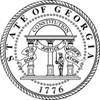
Deal aims for No. 1 business climate
Governor proposes tax reforms to give Georgia competitive edge in jobs
At the Georgia Chamber of Commerce’s Eggs and Issues breakfast this morning, Gov. Nathan Deal put forth a list of agenda items to distinguish our state as the best place in the nation to do business.
“In these challenging economic times in which jobs are portable, we must do more to compete,” Deal said. “It is my goal to make Georgia the No. 1 state in which to do business. The Georgia Competitiveness Initiative Task Force developed a set of tax structure proposals that we believe will give Georgia an edge over other states. We believe this will result in more Georgia companies expanding their footprint here.”
Deal proposed the following:
• The removal of the sales tax on energy used in manufacturing. “In an age of much higher energy costs, this will impact a large component of manufacturers’ overall cost structure and vastly improve the competitive position of our producers,” Deal said. “Today, in executive offices right here in Georgia, business leaders are making the business decision to expand manufacturing activity and facilities in neighboring states. Every time they make that decision, we miss out on new investment in our communities and new job opportunities for Georgians.”
• Sales and use tax exemptions for construction materials used in projects of regional significance. “The result is simple but powerful: local governments have more options to incentivize investment and job growth. When it comes down to Georgia versus Virginia or Florida, the competition is tight. It often goes down to the wire -- even into overtime -- and this is one field goal Georgia can’t afford to miss.”
• Modernize Job Tax Credits and Quality Jobs Tax Credit program. “We are proposing to decrease the quality job creation threshold from 50 jobs to 15,” Deal said. “This will reshape the landscape in Georgia for small business owners. This will help start-ups get off the ground in those critical early stages.”
“The competitiveness initiative was tasked with improving our business climate,” Deal said. “We have to couple these reforms with infrastructure improvements and solid steps toward training our workforce for the jobs of tomorrow.”
The governor touted elements of his 2013 budget that make additional investments in the Savannah Port and in building capacity for water supply.
The Deal budget for next year includes $46.7 million in bonds to continue deepening the harbor. This builds on the more than $136 million already invested for harbor deepening over the last three years – another big step toward the state’s 40 percent share.
“A deeper Savannah Harbor means greater efficiency for 21,000 U.S. companies, 75 percent of which are headquartered outside of Georgia. A U.S. Army Corps of Engineers study has shown that the deepening will reduce shipping costs for private companies by at least $100 million a year. Neither Georgia nor this nation can afford to delay a project that provides customers with a tool that reduces their costs. Savannah is now the second busiest port for containerized exports in the United States. In a challenging 2011, exports from Savannah grew a full 12 percent.”
The budget also includes $45.7 million for reservoirs, the second installment in a four-year plan.
“Local governments can now apply for the low-interest loans and state direct investment and we are one step closer to enhanced water security in this state,” Deal said. “With our state’s population projected to grow by an additional 4.6 million people over the next two decades, it is imperative that we expand water supply.”
Lastly, the governor emphasized the need for ratifying the TSPLOST across the state this summer. “We are falling behind, and local communities have put together project lists that are worthy of support. We have to get our people and goods moving again. Georgia can either go forward with this wise investment or our transportation system will be stuck in the past while we’re stuck in traffic.”
